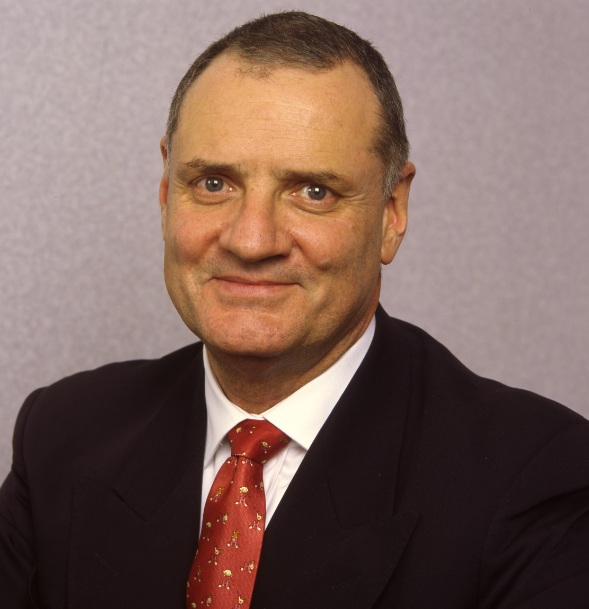|
|
Profile: Ernie Blom
Mar 30, 2014 3:32 AM
By Rapaport News
|
|
|
RAPAPORT... Ernest Blom Diamonds is a diamond trading company. Ernie Blom serves as chairman of the Diamond Dealers Club of South Africa and president of the World Federation of Diamond Bourses.
 Name: Ernie Blom Name: Ernie Blom
From: Johannesburg, South Africa
Company: Ernest Blom Diamonds – Founder & Managing Director
Rapaport News: How did you come to work in the diamond industry and get involved in its political structures?
EB: I’m a third generation diamantaire. My father was a diamond polisher and came to South Africa from Holland in 1927. I became a polisher when I left school and a factory steward by age 24. I was elected to the trade union’s executive committee and became the youngest ever vice president of the Diamond Workers Union. I started my own business in 1978 and got involved in industry politics, initially through the Rough Dealers Association and then with the Diamond Dealers Club, where I became chairman. I’m currently in my second term as president of the World Federation of Diamond Bourses (WFDB) and have been nominated for a third term.
Rapaport News: What is your opinion of the current state of the diamond market?
EB: All the fundamentals are in place to ensure long-term growth. We have our ups and downs but consumer demand is robust and we’ve seen a positive start to the year. The prospects for sustained growth for 2014 are positive.
Rapaport News: How is South Africa navigating the current environment?
EB: South Africa is going through a difficult time. Our diamond manufacturing industry is shrinking, which is a deep concern. The polished market itself is not too bad but we have to import more goods than we used to. The rough tenders are still strong and we have a steady influx of rough buyers coming to South Africa.
Rapaport News: Has South Africa benefited from the growth of neighboring centers such as Botswana?
EB: Buyers use South Africa as a base before moving on to Botswana. But we haven’t really seen a spill over to the local trade. Most of the bigger companies come to South Africa anyway because our rough tenders are still substantial. The timing of the De Beers sights in Botswana doesn’t always coincide with our tenders, so companies send their buyers to South Africa regardless of Botswana.
Rapaport News: Is there a long-term strategy to grow the industry in South Africa?
EB: The industry is dependent on the government. We would like to diminish the red tape, such as the value added tax (VAT), which takes a sizeable amount of our capital. We would like to ease the import and export of rough diamonds so we can commission more work. There’s a lot the government can do legislatively to help the industry.
Rapaport News: What are the biggest challenges facing the global industry?
EB: Our biggest challenge is profitability. The disconnection between rough prices and market prices for polished is notable. It’s a free market system so unless we get rid of speculation and people trade diamonds at fair market prices, we’re always going to have that challenge.
The other challenge is trade finance. The banks are decidedly wary and we have to develop a sustainable partnership between the banks and the industry.
Rapaport News: How is the emergence of new trading centers affecting the market?
EB: I don’t think it’s affecting how the industry operates, but it is changing the dynamic for the traditional centers. Most of the producing countries in Africa want to ensure that beneficiation, job creation and the sale of rough diamonds take place in their jurisdiction, and that is putting pressure on the traditional centers. Then you have new centers such as Panama, which is trying to be a regional hub, and centers such as Dubai, Hong Kong, Singapore and Shanghai, which are very ambitious. Our industry has become a global village and all these centers are trying to gain market share.
Rapaport News: How important is the diamond bourse to the trade today?
EB: The WFDB and the bourses are as relevant as they were 60 years ago, if not more so, when you consider the challenges facing us such as money laundering, terrorist funding and the synthetics situation. The WFDB and the bourses enable the industry to take collective action on these and other issues.
We want to be a robust and ethical industry. The WFDB is the body that can make the biggest contribution to tackling such challenges because of our discipline, arbitration and expulsion procedures.
Rapaport News: What message do you have for the diamond industry as the president of the WFDB?
EB: We are one of the most ethical and controlled businesses in the world and have a lot to be proud of. I would love to see the younger generation getting more involved to ensure continuity. That used to be a bigger challenge but we are seeing more young diamantaires at our meetings and that’s something that we have to encourage.
|
|
|
|
|
|
|
|
|
|
Tags:
Rapaport News
|
|
|
|
|
|
|
|
|
|
|

|
|